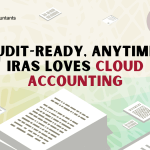Singapore, one of the major global financial centres, provides business clients with top-notch banking and related financial service options.
In this article, we are going to talk about how to open a corporate bank account in Singapore. It gives a general overview of the most current regulatory modifications that have an impact on opening bank accounts in Singapore and includes instructions for navigating the new Customer Due Diligence practices that banks have implemented.
Key Facts About Banking in Singapore
One of the most important factors for businesses to take into account when deciding where to establish their operations is the ease and reliability of banking. The following are some essential details concerning Singapore’s banking sector that you should be aware of:
- Singapore has a triple-A-rated economy and is highly regarded. In the most current Global Financial Centres Index (GFCI), it is recognised as the fourth-largest financial hub on the planet. Hong Kong has become known as the third-best financial hub in the world, behind London and New York City, due to the recent turmoil and fluctuations there.
- Secure Internet banking and multi-currency accounts are offered by all banks in Singapore. You are free to keep funds and carry out transactions in any significant currency. There are no limitations on receiving money outside or sending money abroad (subject to any international sanctions against specified countries). Banks have different minimum balance requirements and bank fees. The prices are generally reasonable and competitive on a global scale.
- In Singapore, a digital bank account like Wise (formerly known as Transferwise) is gaining popularity. Due to the simplicity of using the account and lower transaction fees, many of our clients prefer digital banking accounts for their purposes.
- In Singapore, you may find branches of almost every major bank in the world. Furthermore, Singapore is home to a number of reputable and well-capitalized domestic banks.
- Singapore’s banks operate free from any governmental restrictions on the flow of money and are fully connected to the world financial system. A corporate bank account in Singapore can effectively accept money from or transmit legal payments to any location in the world.
- The bank’s regulatory compliance department must assess and approve all newly opened bank accounts. You are less likely to be successful in opening a bank account in Singapore if you are merely incorporating a shell company with no actual, legal commercial activities. On the other hand, if your goals and objectives are honest, your business structure is open and transparent, and you have a regional connection, you shouldn’t have any issues obtaining a bank account.
Greater Inspection by Traditional Banks
The thorough screening that Singapore’s banking system conducts to make sure that new participants in the system are honest and reliable players is a major factor in why the system runs so efficiently.
Singapore recently put into effect a strong regulatory framework and supervision plan to adhere to the anti-money laundering and counter-terrorism financing (AML/CTF) regulations. Singapore stands out in terms of compliance since it was judged to be non-compliant with none of the 40 FATF recommendations, according to the FATF’s most recent report.
As a result, before accepting any new applicants as clients, every Singaporean bank must do a thorough “Know Your Client” evaluation of each one. The Customer Due Diligence (CDD) procedure used by banks entails checking the credentials of a company’s key employees, the company’s funding sources, the company’s legal structure, the company’s line of business, and other factors.
Consider opening a Digital Bank Account
While the focus of this article is on opening a corporate bank account with a traditional Singapore bank (such as OCBC, DBS, HSBC, Standard Chartered, etc.), digital banking is increasingly becoming a popular banking option for Singapore companies in recent years due to the lengthy account opening processing times associated with traditional banks. Digital banks don’t have any physical branches and only function online.
For Locally-Owned Singapore Companies
The information requirements are rather straightforward for businesses that are Singaporean-owned. Your account can be opened online with one of our carefully chosen partner banks on the same day using our fast-track process. No additional paperwork will be required if you have a SingPass to open a business bank account.
For Foreign-Owned Singapore Companies
Singapore banks must obtain more specific information about international clients’ identification, professional backgrounds, and intended business ventures because the Singapore government’s information system does not readily provide data about foreign people to Singapore banks. Banks may need some time to gather, confirm, and vet this material. Opening a bank account can be a lengthy process when a firm is owned by foreign nationals.
The bank will require the following information and documents from foreign nationals:
- Proof of registration of the Singapore company
- Proof of identification and residential address for each of the company shareholders, ultimate beneficial owners, and directors
- Background of ultimate beneficial owners
- Company Information
Opening a Bank Account for a Singapore Offshore Company Checklist
Below are some guidelines that will help you prepare the information necessary for a smooth bank account opening experience:
- Pick the Right Bank
Choose a bank that will offer financial services appropriate for your company’s operations. Future banking-related issues can be greatly reduced by selecting a bank and account that are compatible with your business. You should think about the following:
-The number of financial transactions predicted by you
-The initial funds you’ll put up with the bank
-The typical minimum monthly sum you plan to keep with the bank
-Your company might require additional financial services.
-Requirements for the account’s minimum balance
-Your customer care representative can provide you with more details.
- Give all the Details Upfront
The bank will be able to comprehend your business model more readily if you can give it more details about you and your company’s plans. Give details about your business operations, your prior professional experience, possible clientele, the type of banking transactions you engage in, a link to your website, and, if you have one on hand, a business plan for the planned venture. Provide reference letters from prior commercial banking ties, if readily available. If there is anything complicated about your background or your shareholder structure, be proactive in anticipating questions that might be asked and answering them.
- Be Honest
Be honest and truthful in the information you offer; this is the most crucial rule. If the bank learns of something untrue, it will damage your reputation and make it challenging to cooperate with the bank. Never appear evasive, dishonest, or untruthful in front of others.
- Answer the Who, How, and Whom Questions
-Who are the important people in the company,
-How did they raise the company’s initial capital? How do they intend to generate revenue in the future?
– To whom are they going to transfer money as part of their business
Final Note
Every business must open a bank account, and doing so is frequently the first thing to do following incorporation. Singapore banks have increased their client due diligence procedures in response to the AML and CTF legislation to make sure that the bank account is only used for legal business purposes.







